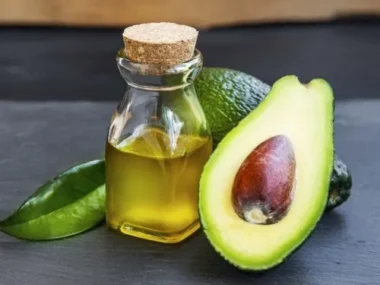When it comes to keeping your chainsaw in good working order, bar and chain oil is usually the first thing that comes to mind. This special oil helps reduce friction between the chain and the bar, which not only makes cutting easier but also extends the life of your chainsaw. However, there may be times when you find yourself without bar and chain oil, whether due to availability or perhaps the cost.
There are other options that can serve as substitutes in a pinch. While these alternatives may not work as perfectly as the real thing, they can still help keep your chainsaw running smoothly when you’re in a bind.
In this post, we’ll go through 11 of the best substitutes for bar and chain oil. Keep in mind that these alternatives should be used only when necessary, and it’s always best to return to using proper bar and chain oil as soon as possible to ensure the best performance and longevity of your chainsaw.
11 Best Substitute For Bar And Chain Oil
1. Vegetable Oil

One of the most popular substitutes for bar and chain oil is vegetable oil. This type of oil is readily available in most kitchens, making it an easy go-to when you’re out of bar and chain oil. Vegetable oil is biodegradable, which is a big plus if you’re concerned about the environment.
It provides decent lubrication for the chain, allowing it to move smoothly over the bar. However, vegetable oil may not perform as well in extreme temperatures, as it can become too thin in hot weather or too thick in cold weather. Despite this, it remains a viable option, especially for light-duty tasks.
2. Canola Oil

Another kitchen staple that can be used as a substitute is canola oil. Like vegetable oil, canola oil is biodegradable and environmentally friendly. It offers similar lubrication qualities and is also easy to find. One of the advantages of canola oil is its lower viscosity compared to vegetable oil, meaning it can flow better in cold weather.
This makes it a better choice if you’re using your chainsaw in cooler conditions. However, canola oil can still be prone to breaking down under high temperatures, so it’s best used for lighter jobs or in cooler climates.
3. Motor Oil

Motor oil is another option that many people turn to when they need a quick substitute for bar and chain oil. It’s commonly available, and its properties make it a decent choice for lubrication. Used motor oil can be recycled for this purpose, but it’s important to note that it may contain impurities that could cause harm to your chainsaw over time.
Fresh motor oil is a better option if you’re considering this route. While motor oil provides good lubrication and can handle a range of temperatures, it is not environmentally friendly, as it doesn’t break down naturally and can be harmful if it gets into the soil or water.
Read also 10 Best Substitutes For Fork Oil
4. Transmission Fluid

Transmission fluid is another alternative that can be used in a pinch. This fluid is designed to work under high pressure and heat, which makes it a strong candidate for bar and chain lubrication. It flows well in both hot and cold conditions and provides a good level of protection for your chainsaw’s moving parts.
However, like motor oil, transmission fluid is not biodegradable and can be harmful to the environment. If you choose to use it, be mindful of where the oil ends up and avoid letting it spill onto the ground or into water sources.
5. Hydraulic Oil

Hydraulic oil is used in heavy machinery to transfer power and lubricate moving parts, making it another possible substitute for bar and chain oil. It has good viscosity properties and can perform well in a wide range of temperatures.
Hydraulic oil is designed to resist breakdown under pressure, which can be beneficial for the high-speed rotation of a chainsaw chain. However, like motor oil and transmission fluid, hydraulic oil is not biodegradable and can be harmful to the environment. Use it with caution and be aware of potential spills.
6. Chain Saw Oil Mix

If you find yourself in a situation where you can’t get bar and chain oil, but you have some motor oil and vegetable oil on hand, you can create your own mix. By combining these two types of oil, you can create a substitute that has the benefits of both.
The motor oil provides durability and high-temperature resistance, while the vegetable oil adds a more environmentally friendly aspect to the mix. Adjust the ratio depending on the conditions, using more motor oil for hotter temperatures and more vegetable oil for cooler conditions.
7. Olive Oil

Olive oil, another kitchen staple, can also be used as a substitute for bar and chain oil. It’s biodegradable and has good lubricating properties. However, like other vegetable-based oils, olive oil can become too thick or too thin depending on the temperature.
It’s best used for light-duty tasks or in moderate weather conditions. Olive oil is more expensive than some of the other options, so it might not be the most economical choice if you need a large amount.
8. Automatic Transmission Fluid (ATF)

ATF is similar to regular transmission fluid but is specifically designed for vehicles with automatic transmissions. It has a high resistance to heat and pressure, making it a suitable alternative for bar and chain oil.
ATF has cleaning properties, which can help keep your chainsaw chain and bar clean while providing lubrication. However, like other petroleum-based oils, ATF is not environmentally friendly and should be used with caution.
9. Drained Diesel Engine Oil

If you have some used diesel engine oil on hand, it can be repurposed as a substitute for bar and chain oil. Diesel engine oil is designed to handle high temperatures and heavy loads, making it a viable option for chainsaw lubrication.
Like other used oils, it may contain contaminants that could damage your chainsaw over time. It’s also not environmentally friendly, so it’s important to use it responsibly and avoid letting it spill onto the ground.
10. Gear Oil

Gear oil is another heavy-duty oil that can be used as a substitute for bar and chain oil. It has high viscosity, meaning it sticks well to the chain and bar, providing good lubrication. Gear oil is designed to withstand extreme pressure, making it a solid choice for demanding chainsaw tasks.
However, its thick consistency can also make it harder for the oil to flow smoothly, especially in colder weather. Additionally, gear oil is not biodegradable and can be harmful to the environment, so it should be used with care.
Read also 13 Best Substitutes For Cutting Oil
11. Bio-Oil

If you’re looking for a more environmentally friendly option, bio-oil is worth considering. Bio-oil is made from renewable sources like plants and is fully biodegradable. It’s specifically designed to be used in place of traditional bar and chain oil, making it one of the best substitutes if you’re looking to reduce your environmental impact.
Bio-oil provides good lubrication and works well in a range of temperatures. However, it may not be as readily available as other options, and it can be more expensive.
Conclusion
While bar and chain oil is the best option for keeping your chainsaw running smoothly, there are several substitutes that can work when you’re in a bind. It’s important to consider the specific needs of your task and the conditions you’re working in when choosing a substitute. Remember that these alternatives are not perfect and should only be used temporarily until you can get the proper bar and chain oil. By understanding these substitutes, you can ensure that your chainsaw remains in good working order, even when you don’t have the right oil on hand.






